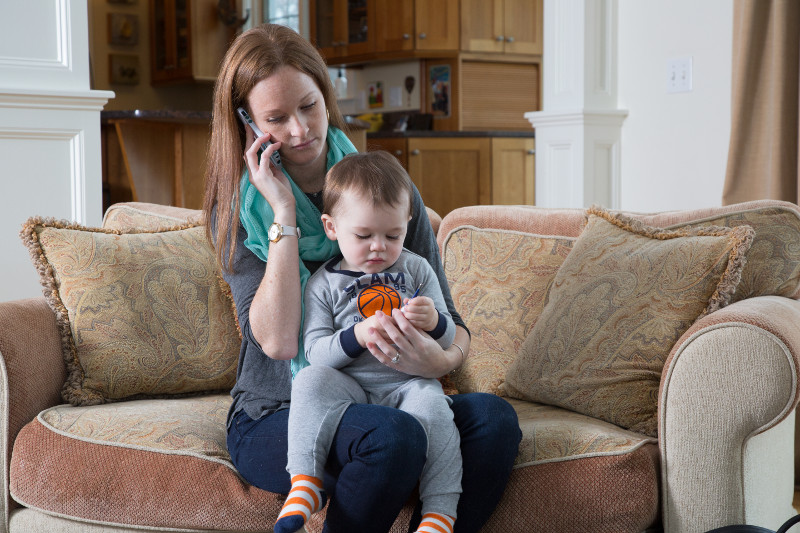The real cost of childcare breakdowns? More than just a day off
The following post comes from Bright Horizons US Marketing Manager, Sean McCarthy.
About a decade and a half ago, economists coined the term “presenteeism” to describe what happens when employees come to work when they’re sick. Not surprisingly, illness doesn’t do much for productivity. And the distraction of aching heads and stuffy noses adds up – collectively costing more than the losses for employees who just closed up shop and stayed home.
But what if the present-but-absent syndrome wasn’t an actual headache, but a metaphorical one – a babysitter who doesn’t show up? A forgotten inset day at school? A nanny needing an unexpected day off?
The double-whammy of childcare breakdowns
Arguably, that’s a bigger problem. Illness, after all, only affects the time an employee is sick. Childcare problems can linger for days. It’s the moment the babysitter cancels, plus the desperate, time-consuming calls to find a replacement, the involuntary tics of checking and rechecking the phone to see if anyone’s responded to the call, and then interviews and background checks for an unknown found online.
Eight hours without a nanny on a Wednesday can cost the organisation much of the Monday and Tuesday before. And the higher the stakes – a hard-won meeting with a prospect versus a garden-variety day of work – the greater the panic-stricken distraction and the more cataclysmic the potential cost. It’s even worse when the worry, stress, and obsessing fail to produce an actual babysitter. Then you’ve lost potential client meetings and billable hours as well a couple of days work.
It’s the unappreciated double-whammy of the childcare dilemma that often goes undiscussed. Our most recent data shows that people without childcare are losing eight days annually to childcare problems. The companion statistic is that they’re also no doubt contributing to $300 billion in losses related to workplace stress.
The 'mismatch' between childcare needs and workplace demands
Among the parents we talked to, many were lucky to have one person on speed dial to pinch hit. Part of the problem is guilt. Parents are loathe to rely on relatives, and many have missed work simply because they couldn’t bear to dial up a favour…again. How hard and expensive is it to find someone who isn’t related? One site suggests leaving three to six weeks for a full-time nanny. For last-minute care employees don’t source themselves, they’ll also pay daily placement fees in addition to hourly rates, figures that can add up.
“This mismatch between childcare needs and work demands forces parents to assemble a complicated bundle of arrangements,” wrote the New York Times recently. “These arrangements can be unstable and difficult to maintain, stress relationships and threaten the stability of already precarious work situations.”
The economics of providing a solution
The economics of solving the problem just make sense. Employer-sponsored back-up networks that subsidise care – and just as importantly, source and vet it – do more than avoid the above losses of multiple days. One estimate put the savings for a 250-person company at £58.485 per year. Add that to the risk of losing employees – our Modern Family Index says 69% of working fathers and 56% of working mothers say parenthood will likely prompt a job change.
And it’s not theoretical. Just how not theoretical can be read in one Unilever employee’s experience. “By signing up [for employer-sponsored back-up care], I’ve taken that responsibility off of my plate and a competent professional has taken that on for me,” she told us when a nanny canceled before an important client meeting.
“I don’t have to make 20 different calls. I don’t have to ask family or friends for a favor. I don’t have to worry about it. I know that back-up care is going to show up when I need them to.”




